The UK edition of the renowned American tech magazine WIRED published its yearly round-up of Europe’s 100 “hottest startups” for 2018, carefully selected and featured in the September/October issue coming out on newsstands (and airports!) next week, with Tesla’s Elon Musk gracing the cover.
Among the 100 companies are 10 “hottest startups” from Tel Aviv (and Israel generally). In an article highlighting the Startup Nation’s financial capital, WIRED UK’s assistant editor Oliver Franklin-Wallis called Tel Aviv a “deep-tech powerhouse” that is “beginning to shake off its reputation as Europe’s exit capital.”
Franklin-Wallis said that “a combination of strong technical education (backed by local entrepreneurs’ experience in the Israeli Defense Forces), high levels of venture capital and a support network of serial entrepreneurs has established the city’s reputation for building innovative companies.” And Tel Aviv’s strong support for new initiatives, its “vibrant, beachside flavor, diverse culture and strong international links, continue to attract first-time founders.”
SEE ALSO: Israeli Unicorns: These 18 Companies Are Valued At Over $1B
Israel’s strengths in cybersecurity, artificial intelligence, and computer vision have put local startups “high on the shopping lists of Silicon Valley’s tech giants in recent years.”
But that is slowly changing.
“The main change is the transformation from startup nation to scale-up nation,” Eyal Gura, a serial angel investor and co-founder of Zebra Medical Vision, told WIRED. Zebra Medical Vision, which uses artificial intelligence to read medical scans to automatically detect diseases, made WIRED’s list in 2015 .
“We’re seeing a new type of bold VCs and entrepreneurs trying to scale companies to levels that haven’t been seen before,” he explained.
WIRED is slowly rolling out its top 10 lists from cities across Europe (and not quite Europe, as Israel is technically in Asia) and the “hottest startups” in Istanbul, London, Berlin, and Helsinki, are already available online.
Here are the top 10 from Israel:
Bancor
Bancor, an Israeli-Swiss cryptocurrency startup that developed a virtual currency conversion platform, made headlines last year when it raised $153 million in just three hours in an ICO (initial coin offering). At the time, the company said it was the second-largest fundraising campaign in the blockchain industry.
Founded in 2016 by Guy Benartzi, Eyal Hertzog, Yehuda Levi and Galia Benartzi, Bancor enables its users to instantly convert or trade their currencies. In April, Bancor released a crypto wallet that offers in-wallet conversion between more than 100 cryptocurrencies.” In July, it lost some $23.5 million of cryptocurrency tokens in a hacking attack.
CommonSense Robotics
Founded in 2015, CommonSense Robotics is an exciting startup in retail tech, which aims to help online retailers offer on-demand, one-hour deliveries using robotics and artificial intelligence. That’s autonomous robots sorting and preparing delivery products.
The company says its Amazon-style “micro-fulfillment-center is an urban, automated fulfillment solution that combines the benefits of local distribution with the economics of automated fulfillment, and is re-defining the way goods are fulfilled and delivered within cities.”
In April, Israeli media reported that the company was selected by Israel’s largest pharmacy chain, Super-Pharm, to operate a logistics center in Israel sometime later this year.
The company has so far raised over $26 million, including from Eric Schmidt’s Innovation Ventures.
Healthy.io
Tel Aviv-based Healthy.io aims to turn smartphones into sophisticated diagnostics devices capable of analyzing urine samples.
Earlier this year, Healthy.io announced a new partnership with the US National Kidney Foundation (NKF) and Geisinger, one of the largest health services organizations in America, for a clinical trial using the smartphone-enabled home urinalysis device for chronic kidney disease (CKD) among patients with high blood pressure.
The company was selected among 13 Israeli startups NoCamels called “pioneers of innovation” to mark Israel’s 70th anniversary in April.
LawGeex
LawGeex‘s software-as-a-service (SaaS) platform uses artificial intelligence to automate, review and approve the legality of business contracts before they are signed. It was founded in 2014 by Noory Bechor, a lawyer, and Ilan Admon, an AI specialist.
Bechor told WIRED he came up with the concept after wasting hours reviewing documents. “Once you’ve seen hundreds of examples of a specific contract type, the concepts keep repeating themselves,” he said. “I thought, ‘If this is so repetitive, it can be automated.’”
“Think of it as functioning the same way an autopilot works with a pilot: we take care of the small repetitive tasks, allowing them to focus on the strategic ones,” he added.
Sign up for our free weekly newsletter
SubscribeThe startup has offices in Tel Aviv and New York and clients that include Deloitte, eBay, Sears and Farmers Insurance. It has raised over $20 million in funds.
Lemonade
Israeli-founded, New York-based insurance startup Lemonade has been reshaping the insurance market ever since it was created in 2015 by entrepreneurs Shai Wininger, a co-founder of Fiverr.com, and Daniel Schreiber, former president of Powermat.
The company uses behavioral economics and technology, leveraging artificial intelligence and chatbots to deliver insurance policies and handle claims for users in 16 states. Customers pay a flat rate and find insurance plans through automated data analyses. Unclaimed money goes to non-profits chosen by customers, which Lemonade says leads to fewer false claims.
In late 2017, Lemonade raised $120 million from the Japanese SoftBank Group, bringing its total funding to date to $180 million.
Lightricks
Jerusalem-based Lightricks helps amateur photographers and videographers master professional-style photo editing via its apps on Apple and Android.
The company’s Facetune, a portrait retouching application, reached Apple’s best-selling paid app in 2017. Lightricks is also behind the popular Enlight photo editing app, which was Apple’s App of the Year in 2015, the No.11 bestselling paid iOS app in 2016, and winner of Apple’s prestigious Apple Design Awards of 2017. Both apps also reached a No.1 rank on iOS charts in over 120 countries.
“Our goal at Lightricks is to give aspiring artists unprecedented fun and powerful creative tools that look and feel magical,” the company has said.
Lightricks has built a number of additional creativity apps, including video editor Videoleap and Quickshot. It was founded in 2013 by Zeev Farbman, Amit Goldstein, Nir Pochter, Yaron Inger, and Itai Tsiddon.
Missbeez
Founded in 2015 by entrepreneurs Maya Gura and Gil Bouhnick, Missbeez brings AI to its app platform, allowing busy customers to order beauty treatments and lifestyle services to their homes or workplaces. The list of services includes manicures, pedicures, massages, spray tans, hair removal, hair styling, and makeup.
The company handles the providers’ payment, route planning, and schedules.
“Our mission is to create work opportunities for thousands of self-employed professionals,” Gura told WIRED. Missbeez has offices in Tel Aviv, London, and Madrid.
Otonomo
Herzliya-based Otonomo, an automotive data services platform for autonomous and connected cars, says it “enables auto manufacturers, mobility service providers, and application developers to safely share and integrate car-generated data in order to make the driving experience safe, smart, and convenient.”
It was founded in 2015 by Avner Cohen and Ben Volkow and has raised over $40 million to date. Investors have included Aptiv (Delphi Automotive), Dell Technologies Capital, Hearst Ventures, Stageone Ventures, and Maniv Mobility. Otonomo also has a presence in the US, Europe, and Japan.
Vayyar Imaging
Vayyar Imaging developed revolutionary technology that can “see” through objects, including liquids and human tissue, to deliver 3D images, with a host of applications.
The tech is being used across industry sectors including automotive, construction, agriculture, smart homes, robotics and medical care.
NoCamels reported in 2017 that Vayyar’s sensor-based technology “can see through skin and tissue to detect cancer masses, look through walls and create a 3D image of hidden structural foundations; or, it can be used to create a smart home that tracks the location of persons needing care, as well as their vital signs as they move around the house.”
In May, Vayyar launched what it called the “world’s most advanced millimeter-wave 3D imaging chip,” which provides a high-resolution, mobile, and cost-effective 3D imaging solution. It has raised almost $80 million since it was founded in 2011.
Vayyar was selected among NoCamels’ nine “superhero” startups for 2017.
Zeek
Tel Aviv-based startup Zeek developed a mobile platform that allows users to buy gift cards and vouchers from major brands at a discount and sell unwanted gift vouchers for cash, providing a solution to the estimated $100 billion of unused gift cards globally.
Founded in 2013 by Daniel Zelkind, Itay Erel, and Ziv Isaiah, its investors have included Waze’s Uri Levine, Qualcomm Ventures, and Scale-Up Venture Capital. The company has a presence in the UK.
Related posts

Editors’ & Readers’ Choice: 10 Favorite NoCamels Articles

Forward Facing: What Does The Future Hold For Israeli High-Tech?

Impact Innovation: Israeli Startups That Could Shape Our Future




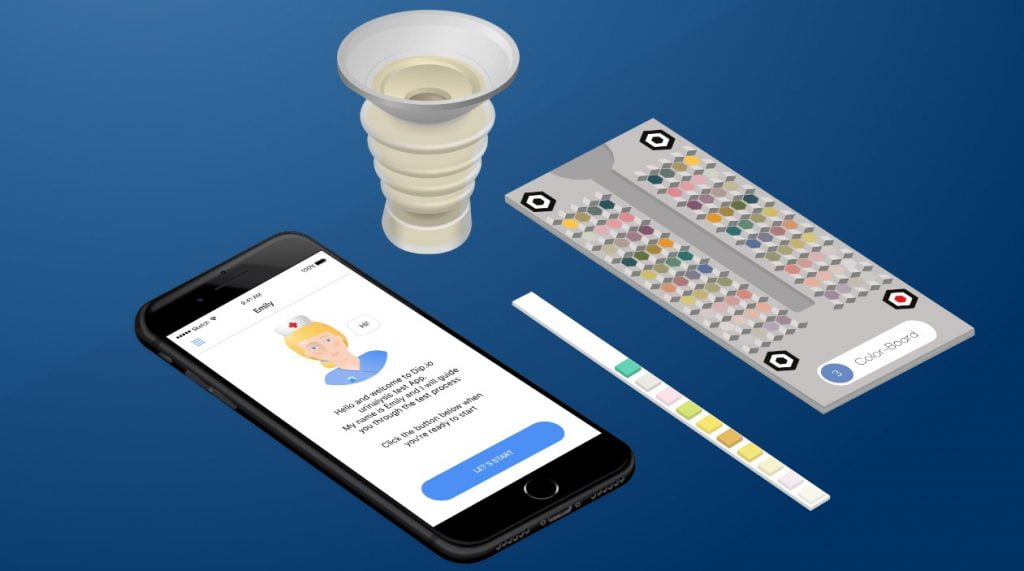
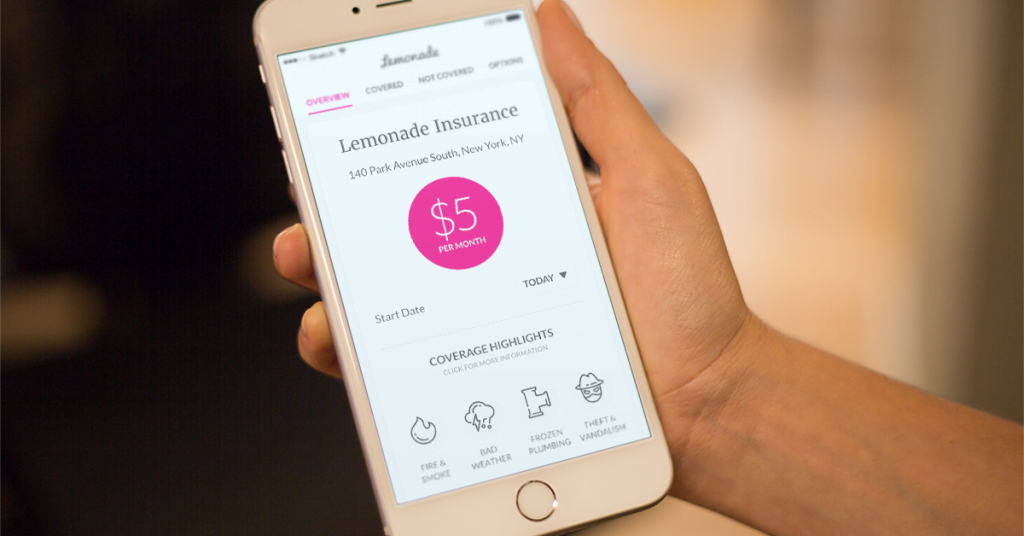

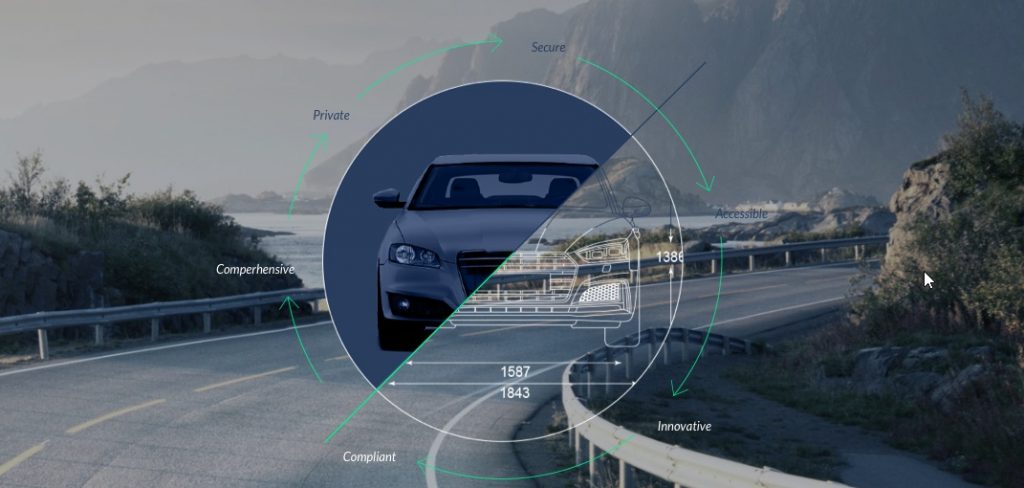
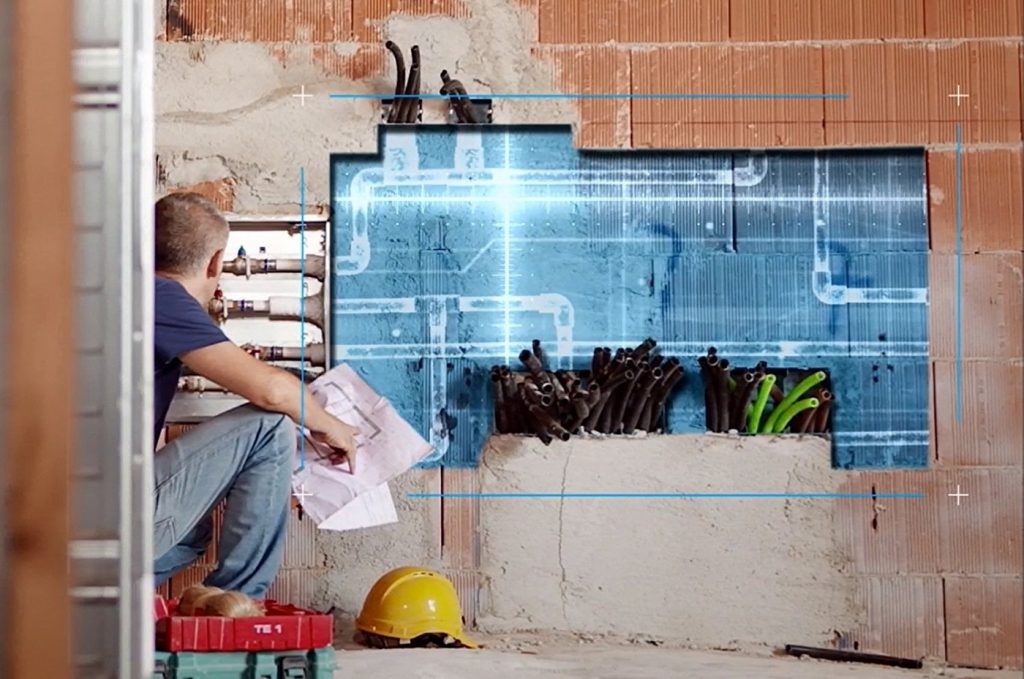
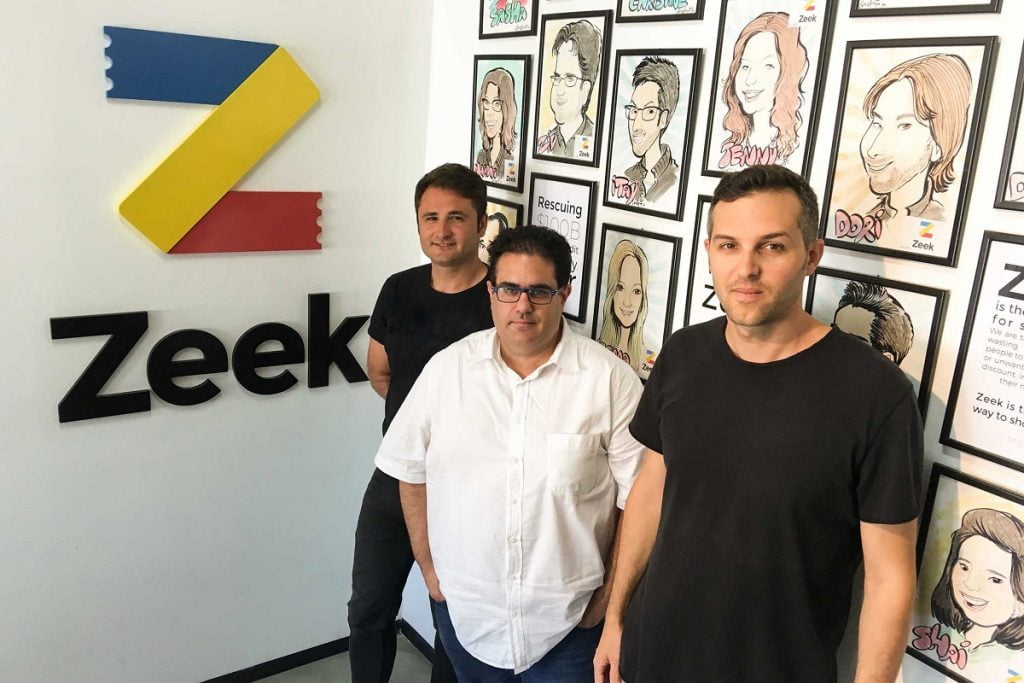

Facebook comments